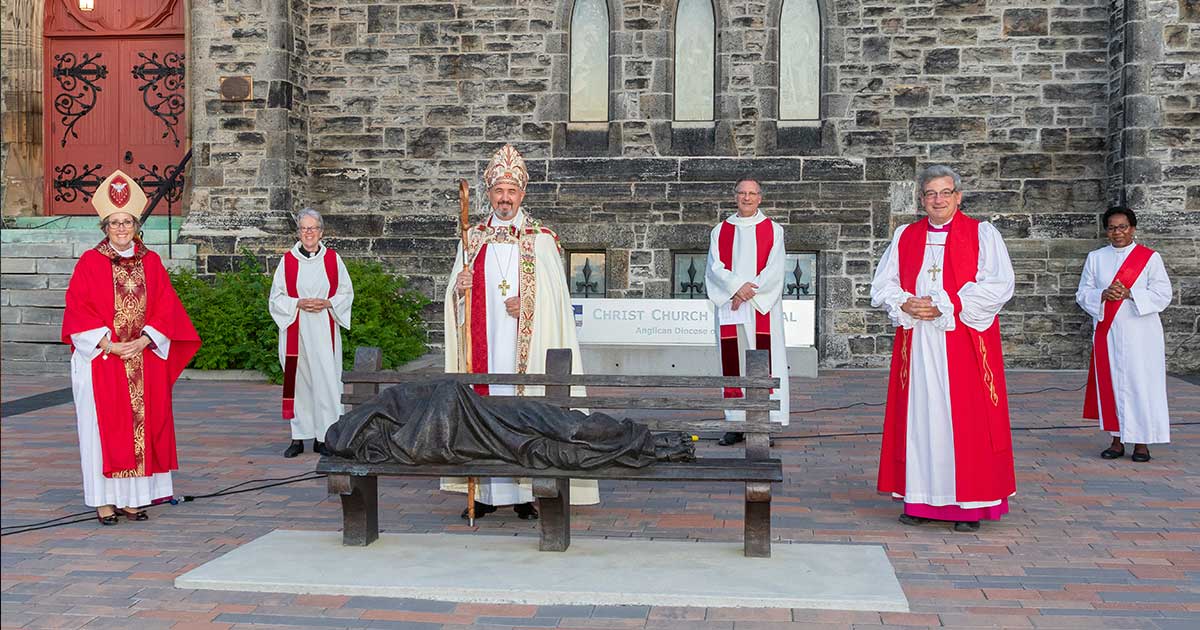
The first two papers isolate critical questions for Anglicans. Ecumenical and Interfaith leader Scott Sharman brings in questions and insights from ecumenical partners with whom we are in active formal dialogue. In The Eucharist Belongs to None Alone, he asks that Anglicans not consider our thinking about – and possible changes to practices of – holy communion without placing our concerns in dialogue with these partners, and he concludes his paper with questions some of those individual partners may have of us. Liturgist Barbara Liotscos urges us to look to the real practice of the early church for alternative ways of reimaging our gatherings – as house churches and small groups, and cautions us not to fall into creating a ‘priestly caste,’ something it can be argued the early church avoided.
Terry Brown writes from the context of the Solomon Islands where he served as bishop for many years. The bishop of that diocese did, in fact, write a guide for Spiritual Communion (quoted by some of the authors in this collection), but Brown finds little evidence of its actual use and wonders if we are not losing sight of the bounty of God’s grace which is “beyond our understanding, so that if for some reason (pandemic, isolation, abuse by the presider, etc.) one cannot receive the Eucharist, God’s grace is still there, including sacramental… grace.”
In Virtual is Real: Some Preliminary Reflections on Eucharistic Worship in a Pandemic, Vancouver Liturgist and theologian Richard Leggett takes on the presumed duality (and to some incompatibility) of ‘the real’ and ‘the virtual.’ Offering clear methodology for the discernment of the ‘real’ in online streamed worship, from pastoral, theological, and liturgical perspectives, he comes to the conclusion that online worship can be both real and personal because it can and does nurture and move people into real discipleship.
Similarly calling upon the historical and present practice of the church, Alison Kemper illustrates arguments for the necessity and centrality of the eucharist according to scripture, tradition, and reason in order to help us to find thereby the spiritual riches for going forward. She calls us to eucharistic piety that ultimately springs forward into astonishing generosity for the healing of the world.
David Edwards takes us through some of the foundational Anglican theological building blocks of sacramental theology, beginning with Cranmer, Hooker and Baxter, and, leaning on John MacQuarrie explores the meaning of sacramental efficacy from the perspective of the presider and of the recipient. Noting that the present context has drawn us into a conversation about our practices that is long overdue, he concludes that rather than going down ‘rabbit holes’ about efficacy and meaning of the sacrament, we do well to put our energies into shaping our practices of non-eucharistic worship and then discussing frequency and necessity of eucharist within the community of engaged disciples.
Greg Kerr-Wilson also brings insights from scripture, tradition and reason to form a critique of contemporary culture especially in its individualism and consumerism. Calling for deeper catechesis, he raises concerns for the post-pandemic church – will people chose to continue with online worship and if so will they opt for spiritual communion, and if that is the case, can those choices seriously be considered the sorts of ‘just impediment’ in the way of reception that was envisioned by Cranmer and others?
The faculty of Queen’s Theological College held several discussions about online worship and spiritual communion, a conversation reflected in the paper with a transparency that reflects some different views and emphases within the group. There are no easy answers to how to proceed with worship in a pandemic, they admit, urging that we need to be open in faith to grace and to the Holy Spirit, an openness modelled in the paper itself especially with respect to whether we might consider the eucharist in the Orthodox terms of an icon, a point on which there was disagreement but appreciation for views.
Vancouver School of Theology Anglican Formation Director Grant Rodgers takes as his starting point the answer “Yes” to the question, Can God Spread a Table in the Wilderness? In a well-grounded explanation of the theology of spiritual communion, he calls us to a wider understanding of sacramentality, reminding us that the doctrine of the communion of saints challenges the notion that only physical proximity conditions the eucharist. Our experience of real presence however experienced mystically, requires us to turn to be real presence to the world. In reflecting on the experience of the parish’ streaming of services of the Word, Paul Jennings also pulls our attention to a wider notion of sacramentality. Word and sacrament are to be affirmed together “as equal and interdependent expressions of the one Word among us, as equal and interdependent means by which Christ is present to his people.” There is a sacramentality, the real presence of Christ, within the Word proclaimed.
